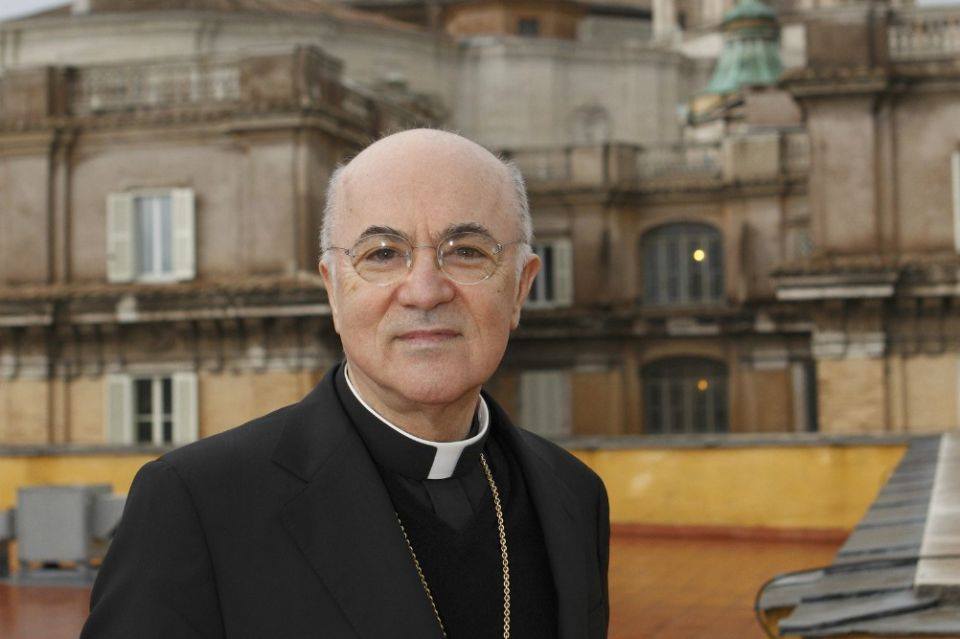
VATICAN CITY — The former Vatican ambassador who accused three popes and their advisers of covering up for a disgraced American ex-cardinal has denounced Pope Francis’ refusal to directly respond to his claims and challenged the Vatican to say what it knows about the scandal.
Archbishop Carlo Maria Vigano penned a new missive a month after his initial 11-page bombshell sent shockwaves through the Catholic Church. It was uploaded to a document-sharing site late Thursday.
In the document, Vigano denounced the official Vatican silence about his claims and accused Francis of mounting a campaign of “subtle slander” against him by referring indirectly to him as Satan in recent homilies. Vigano urged the current head of the Vatican bishops office to speak out, saying he has all the documentation needed to prove years of coverup by the Vatican about alleged sexual misconduct by ex-Cardinal Theodore McCarrick.
“How can one avoid concluding that the reason they do not provide the documentation is that they know it confirms my testimony?” Vigano wrote. “The pope’s unwillingness to respond to my charges and his deafness to the appeals by the faithful for accountability are hardly consistent with his calls for transparency and bridge building.”
The letter was dated Friday, Sept. 29, the feast of St. Michael, Archangel. It was not a coincidence: St. Michael is considered the protector of the church, the leader of all angels who battled evil and drove it from the church.
Vigano threw Francis’ papacy into turmoil last month when he accused Francis of rehabilitating McCarrick from sanctions imposed by Pope Benedict XVI. He accused more than two dozen current and former Vatican officials, as well as a host of U.S. bishops and papal advisers, of being part of the coverup and called for Francis to resign over the scandal.
The Vatican has known since at least 2000 that McCarrick would invite seminarians to his New Jersey beach house and into his bed. And yet St. John Paul II made him archbishop of Washington and a cardinal in 2001, and McCarrick became a spokesman for the U.S. bishops in 2002 as they sought to address the then-burgeoning sexual abuse scandal that had erupted that year in Boston.
Francis removed McCarrick as a cardinal in July after a U.S. church investigation determined an allegation he fondled a teenage altar boy in the 1970s was credible. After news broke of the investigation, several former seminarians and priests came forward to report that they, too, had been abused or harassed by McCarrick as adults. The scandal has led to a crisis in confidence in both the U.S. and Vatican hierarchy, since McCarrick’s sexual escapades were apparently an open secret in some U.S. church circles.
In his first denunciation, published Aug. 26, Vigano initially claimed Benedict had imposed sanctions against McCarrick prohibiting him from exercising public ministry, travelling or lecturing on behalf of the church. He has changed his account, however, since the historic record is rife with evidence McCarrick lived his ministry free from any real constraints, and it is unclear what type of sanctions were ever imposed.
But the crux of Vigano’s claim was that he told Francis of the sanctions against McCarrick on June 23, 2013, and that the pope effectively rehabilitated McCarrick and made him a trusted adviser.